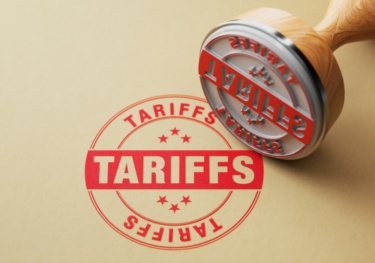Blog | 13 Jun 2024
Second Trump presidency poses a risk to US industry

Abby Samp
Director, Industry Subscription Services

The near-term outlook for US industry is expected to be relatively steady—industry and the economy should largely shrug off the election later this year. In our latest global industry outlook, US industrial output is expected to grow 2.1% in 2024 in value-added terms.
However, the results of the upcoming election could have significant implications for the medium-term outlook for US industry. We ran a scenario through our Global Economic Model and Global Industry Model in which former President Donald Trump returns to the White House and is able to enact his full suite of announced policies, based on a proposal from House Republicans and the Heritage Foundation.
We have previously discussed the ways in which these policies would impact on different sectors in the US economy. Directly, this works through two main channels:
- The repeal of the Inflation Reduction Act (IRA): This is likely to halt investment in a handful of small, but rapidly growing sectors such as solar panels, batteries, critical minerals, and EV facilities.
- New tariffs on imported goods: This raises prices in downstream sectors that rely on tariffed goods as inputs of production. These include textiles, motor vehicles & parts, and electrical equipment..
At an aggregate level, these direct impacts are likely to be relatively small and will likely be concentrated in a few sectors. More importantly, a weaker economy due to higher inflation, increased borrowing costs, and a hit to household and business confidence would have a sizeable impact on demand for US-produced goods and services.
Our modelling suggests that US industrial value-added output falls 2.4% below its level in our baseline forecast by 2029, compared to a 1.3% decline in the economy as a whole. While our baseline forecast shows industrial output growth settling around its medium-term trend of around 1.5% per year until the end of the decade, a Trump presidency could mean growth of just 0.7%.
Unsurprisingly, the most impacted sectors within manufacturing include (see chart):
- Engineering & metal goods (including batteries and other electrical equipment): Several subsectors within electrical equipment lose access to subsidies through the repeal of the IRA. In addition, the new tariffs raise production costs (we estimate by around 2.5%).
- Motor vehicles & parts: As a downstream sector, this relies heavily on imported inputs. We estimate that the higher tariffs would raise costs by 3.6%. Furthermore, this tends to be one of the most cyclical sectors in any downside scenario since motor vehicles are big ticket items that are often bought on credit.
- Basic metals: While the direct price effect on the sector is somewhat smaller, the hit to downstream sectors such as those mentioned above will have an outsized impact on this intermediate goods sector.
Would like to learn more?
To download our June edition of Industry Forecasts Highlights, click here.
To check more US elections content, visit our topic page.
The latest industry scenarios, including the full-blown Trump scenario, have now been uploaded to our online databank to all subscribers to the Global Industry Service. To learn more about the service and request for a free trial, click here.
Author

Abby Samp
Director, Industry Subscription Services

Abby Samp
Director, Industry Subscription Services
London, United Kingdom
Abby is the Director of Global Industry Subscription Services, where she oversees service developments, helps shape the global industry overview and monitors and updates the forecast for the high-tech sector. Abby manages developments to Oxford Economics’ Global Industry Model (GIM), has extensive experience in modelling and scenario-based project work.
Abby has a BASc in Economics from McGill University in Montreal, where she graduated with great distinction and received the Hubert Marleau prize for top marks in economics. She also holds an MSc in Econometrics and Mathematical Economics from the London School of Economics and Political Science, where she graduated with distinction.”
Tags:
You may be interested in

Post
Quantum Computing could boost UK productivity and GDP growth, but government support is crucial
New research from Oxford Economics, published today, predicts that quantum computing could give the UK an economy-wide productivity boost of up to 7% by 2045 – equivalent to every worker achieving an additional three weeks’ worth of productivity per year without working an extra hour.
Find Out More
Post
Industry will be ground zero for disruption caused by Trump’s North America tariffs
Tariff-induced price increases call into question tightly integrated supply chains across North America and make large swathes of exports less competitive.
Find Out More
Post
Motor vehicles, energy and the other parts of industry in the line of fire from USMCA tariffs
The potential damage to large swathes of industry in Mexico and Canada from blanket US tariffs could be devastating and significantly greater than the impact on GDP as a whole.
Find Out More